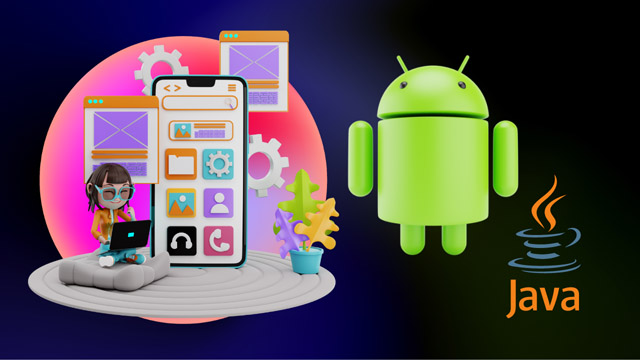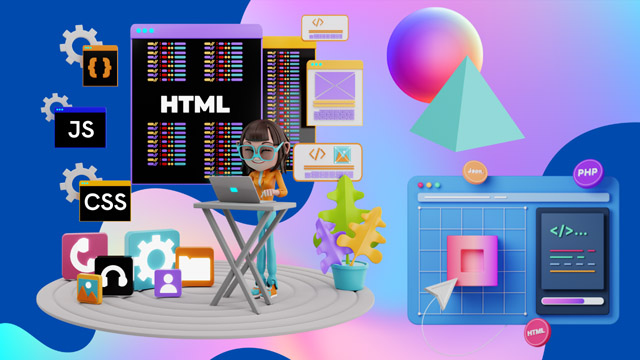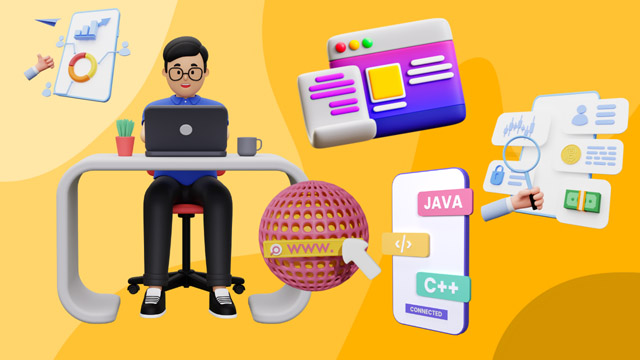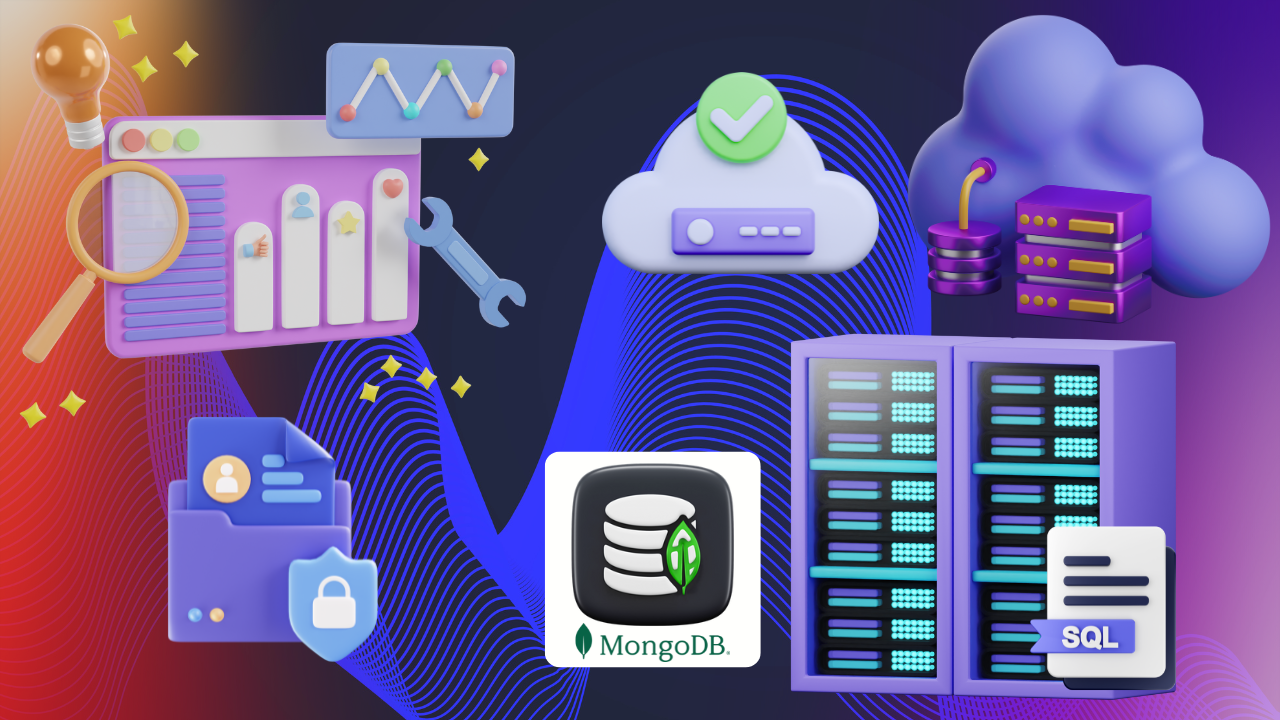- Aspiring Mobile App Developers: Individuals aiming to build a career in mobile application development, focusing on the Android platform.
- Students and Graduates in Computer Science or IT: Those seeking to enhance their programming skills and gain practical experience in app development.
- Software Developers: Professionals looking to expand their expertise into mobile app development.
- Entrepreneurs and Start-up Enthusiasts: Individuals interested in developing mobile applications for their business ideas or ventures.
- Freelancers: Developers aiming to offer mobile app development services to clients.
- Hobbyists and Tech Enthusiasts: Individuals passionate about technology and interested in learning how to create mobile applications.
- Educators and Trainers: Teachers and trainers looking to incorporate mobile app development into their curriculum or training programs.

KLiC Mobile App Development
Have you ever thought of creating your own mobile app?
If yes, then join us in the adventurous journey of creating an app of your own using android.
Android is an open source platform, with no up-front fees, and developers enjoy many benefits over other competing platforms. Android is being positioned to address the growing needs of the mobile marketplace. This course is intended for those who have interest in programming. Prior programming experience will definitely be an advantage, though it is not mandatory.
Who Should Join
What you'll learn ?
This course covers various components of an Android application, event handling in Android, basics of Java, graphics and multimedia support in Android and demonstration of various popular apps using a simple-to-understand method. After this course, you will be able to create apps of your own and even can work as a freelancer.
After completing this course, you will get to know various Career Opportunities like:
- Junior Android App Developer
- Senior Android App Developer
- Lead Android App Developer
- Mobile Application Developer
- UI Designer
Certification
- KLiC courses are recognised by Yashwantrao Chavan Maharashtra Open University (YCMOU).
- MKCL provides certificate to the KLiC learner after his/her successful course completion.
- Yashwantrao Chavan Maharashtra Open University (YCMOU) provides mark sheet to successfully passed KLiC learners (Jurisdiction: Maharashtra).
Academic Approach
The academic approach of the courses focuses on the “work-centric” education i.e. begin with work (and not from a book!), derive knowledge from work and apply that knowledge to make the work more wholesome, useful and delightful. The ultimate objective is to empower the Learner to engage in socially useful and productive work. It aims at leading the learner to his/her rewarding career as an employee or entrepreneur as well as development of the community to which s/he belongs. Learning methodology:
- Step -1: Learners are given an overview of the course and its connection to life and work.
- Step -2: Learners are exposed to the specific tool(s) used in the course through the various real-life applications of the tool(s).
- Step -3: Learners are acquainted with the careers and the hierarchy of roles they can perform at workplaces after attaining increasing levels of mastery over the tool(s).
- Step -4: Learners are acquainted with the architecture of the tool or tool map so as to appreciate various parts of the tool, their functions, utility and inter-relations.
- Step -5: Learners are exposed to simple application development methodology by using the tool at the beginner’s level.
- Step -6: Learners perform the differential skills related to the use of the tool to improve the given ready-made industry-standard outputs.
- Step -7: Learners are engaged in appreciation of real-life case studies developed by the experts.
- Step -8: Learners are encouraged to proceed from appreciation to imitation of the experts.
- Step -9: After the imitation experience, they are required to improve the expert’s outputs so that they proceed from mere imitation to emulation.
- Step-10: Emulation is taken a level further from working with differential skills towards the visualization and creation of a complete output according to the requirements provided. (Long Assignments)
- Step-11: Understanding the requirements, communicating one’s own thoughts and presenting are important skills required in facing an interview for securing a work order/job. For instilling these skills, learners are presented with various subject-specific technical as well as HR-oriented questions and encouraged to answer them.
- Step-12: Finally, they develop the integral skills involving optimal methods and best practices to produce useful outputs right from scratch, publish them in their ePortfolio and thereby proceed from emulation to self-expression, from self-expression to self-confidence and from self-confidence to self-reliance and self-esteem!
Syllabus
- Introduction to Android
- Introduction to Google Play Store
- Booming Job Prospects
- Career Opportunities in Android
- Android Operating System
- Android versions
- Features of Android
- Android Architecture
- Android Devices
- History of Android
- Android Apps
- In-Built Applications
- Applications by Google
- Social Networking Applications
- Types of Applications
- Paid and Free Apps
- Google Model
- Prerequisites
- Android Environment Setup
- Downloading JDK
- Setting Path of JDK
- Installation of Android Studio in Mac, Linux and Windows
- Setting up ADT Plug In
- Creating First Android Application
- Creation of App
- Android Studio Vs Eclipse
- Android Studio Fundamentals and Android Studio IDE
- Viewing and adding Java
- Compilation and Runtime
- Compilation Process
- Creating Hello Project
- Android Components
- Android Intent
- Types of Intent
- MVP Pattern
- Advantages of using MVP
- Android Services
- Types of Android Services
- Broadcast Receivers
- Android Content Provider
- Types of Views
- Overview of Android Widgets
- History of Java
- Introduction to Java
- Java Development Structure
- Java Program Platform
- Features of Java Program
- Difference between POP and OOP
- Java Applications
- Java Virtual Machine
- JVM Architecture
- JDK Alpha and Beta
- J2SE
- Java SE version
- Setting up Java and Installation of JDK
- Setting Java Variable
- Java Program
- Program structure of Java
- Java Import Statements
- Java Class Definition
- Java Class Member Ordering
- Different styles of Print Statements
- Main Method Signatures
- Java Identifiers
- Reserved Words
- Variables
- Datatypes
- Type Casting
- Operators
- If Statement
- Switch Statement
- While Loop
- Do-While Loop
- For Loop
- For Each Loop
- Java Break Statement
- Java Continue Statement
- Arrays
- Java Maps
- Program Flow
- Introduction to Class and Object
- Working with Object Initialization
- Object Oriented Programming
- Constructors
- Overloading
- Packages
- Uses of Import
- Access Modifiers of Java
- Inheritance of Java
- Uses of Inheritance
- Relationship between Class and Interface
- Polymorphism of Java
- Java Exceptions
- Introduction to Event Handling
- Overview of Event Handlers
- Overview of Event Listeners
- Overview of Event Registration
- Declarative Event Handling
- Programmatic Event Handling
- Working with Event Handling
- Types of Errors
- Demonstration of Syntax Errors
- Runtime Exception
- Demonstration of Runtime Exception
- Logical Errors
- Demonstration of Logical Error
- Component Activation
- Android Lifecycle
- Demonstration of Activity Lifecycle
- Intent and its types
- Implementing the Intent
- Passing data to another Activity
- Introduction to Themes and Colors
- Working with Themes and Colors - Creating Project, Changing values of defined colors, Theme Colors, Styles
- Introduction to App Bar
- Working with App Bar - Adding items, working with Toolbar Activity
- Fragments
- Working with Fragment Design
- Working with Fragments Activity
- Long Running Task
- Demonstration of the Long Running Tasks
- Introduction to AsyncTask
- Demonstration of the AsyncTask
- Introduction to Shared Preference
- Overview of Operating Mode
- Introduction to Editor
- Overview of Methods
- Storing Data
- Overview of Retrieving Data
- Clear and Delete
- Working with Shared Preference - xml File, Main Activity
- Verifying file
- Internal Storage
- Difference between Shared Preference and Internal Storage
- Read and Write data to Internal Storage
- Syntax to Write a text file and Reading a text file
- Demonstration of Internal Storage
- App Number Shapes
- Working with Number Shapes App
- Fizzbuzz App
- Working with FizzBuzz App
- Multiplication Table
- Working with Multiplication Table App
- Outline Methods
- Layout
- Understanding of Constraint and Linear Layout
- Understanding of Frame and Relative Layout
- Image View
- Demonstration of Image View
- Animation
- Demonstration of Animation
- Working with Tic-Tac-Toe Game
- Working with Video
- Controlling Audio
- Audio Volume Seeking
- Grid Layout and working with Grid Layout
- App Basic Phrases
- Working with App Basic Phrases
- ListView
- Time Table App
- Working with Time Table App
- Egg Timer App
- Working with Egg Timer App
- Showing and Hiding UI Element
- Demonstration of Showing and Hiding UI Element
- Brain Trainer
- Working with Brain Trainer App
- Try and Catch Block
- Java String Manipulation
- Java Classes
- Implementing Java String
- String Concatenation and its types
- Implementing Java String Methods
- Guessing Player App
- Processing JSON Data
- Working JSON Data
- Climatic Condition App
- Working with Climatic Condition App
- Implementing Map Activity
- Working with Customize App
- Hikers Watch App
- Implementing Hikers Watch App
- Memorable Places App
- Implementing Memorable
- Storing Data Permanently
- Demonstration of Splash Screen
- Working with Login Activity
- Adding Show Activity
- Introduction to Custom Action Bar
- Customizing Action Bar
- Alert Dialog
- Adding Alert Dialog
- Notes Application
- Creating Notes Application
- SQLite Database
- Implementing and working with SQLite Database
- SQLite Advance
- Working with SQLite Advance
- Webview
- Working with Webview
- Bluetooth
- Implementing Bluetooth
- Version Control
- Implementing Version Control
- Implementing the Firebase
- ADMob and ADmob implementation
- Local Notification
- Implementing Local Notification
- Multi-Screen
- Working with Multi-Screen
- Introduction to Wear OS
- Working with Hello Round World Project
- Working with different watch faces
- Working with People Counter App
- Working with Cards
- Understanding Card
- Making use of List
- Understanding List
- Working with Adapter Class
- Working with List
- Working with Voice Input
- Communicating with User Phone
- Working with Communication Wear Module
- Notification in Wearable OS
- Custom Watch Faces
- Creating Google Sign in
- Configuration for Google Sign in
- Demonstration of Google Sign in
- Building Facebook Login
- Demonstration of Facebook Login
- Working with OTP Verification
- Case Study: Near By Places App
- Case Study: Visitor Management App Case Study: Online YouTube Player Case Study: Chatting App
- Case Study: Art Interest App Case Study: Salon App
- Case Study: Grocery Store Online Shopping App Case Study: Hotel Booking App
- Strategies for Marketing and App Search Engine
- App Store Optimization
- Generating Signed APK
- Creating Play store account
- Updating Developer Profile
- Uploading App on the Play Store
- Basics of Kotlin
- Difference between Kotlin and Java
- Demonstration of Weather App
- Exploring Kotlin Language
List of Software covered in the course:
- Android Studio (Integrated development environment (IDE))
- Java Development Tool Kit (JDK)
List of Software that needs to be installed: (for practice)
- Android Studio 4.1.1/ 4.1.2/4.1.3
- Java Development Tool Kit (JDK) 8
Source for downloading required Software:
- Android Studio (Please refer to the Android Studio Installation instructions document in the link and download the necessary file as per your system configurations.)
- JDK 8
System Requirements
Android Studio 4.1.1/ 4.1.2/4.1.3
- 64-bit Microsoft® Windows® 8/10
- x86_64 CPU architecture; 2nd generation Intel Core or newer, or AMD CPU with support for a Windows Hypervisor
- 8 GB RAM or more
- 8 GB of available disk space minimum (IDE + Android SDK + Android Emulator)
- 1280 x 800 minimum screen resolution
Java Development Tool Kit (JDK) 8
- Windows 10 (8u51 and above)
- Windows 8.x (Desktop)
- Windows 7 SP1
- Minimum RAM: 128 MB
- Disk space: 124 MB for JRE; 2 MB for Java Update
- Processor: Minimum Pentium 2 266 MHz processor
- Browsers: Internet Explorer 9 and above, Firefox
Reference Materials
Important reference books available online:
Android
Java
Kotlin
Other important reference links:
Android
Java
Kotlin
Evaluation Pattern
Evaluation Pattern of KLiC Courses consists of 4 Sections as per below:
| Section No. | Section Name | Total Marks | Minimum Passing Marks |
|---|---|---|---|
| 1 | Learning Progression | 25 | 10 |
| 2 | Internal Assessment | 25 | 10 |
| 3 | Final Online Examination | 50 | 20 |
| Total | 100 | 40 | |
| 4 | SUPWs (Socially Useful and Productive Work in form of Assignments) | 5 Assignments | 2 Assignments to be Completed & Uploaded |
YCMOU Mark Sheet
Printed Mark Sheet will be issued by YCMOU on successful completion of Section 1, Section 2 and Section 3 and will be delivered to the learner by MKCL.
YCMOU Mark Sheet will be available only for Maharashtra jurisdiction learners.
MKCL's KLiC Certificate
The certificate will be provided to the learner who will satisfy the below criteria:
- Learners who have successfully completed above mentioned 3 Sections i.e. Section 1, Section 2 and Section 3
- Additionally, learner should have completed Section 4 (i.e. Section 4 will comprise of SUPWs i.e. Socially Useful and Productive Work in form of Assignments)
- Learner has to complete and upload minimum 2 out of 5 Assignments
KLiC Courses Fee Structure from 01 July, 2025 Onwards
KLiC 120 hour course fee applicable from 01 July, 2025 all over Maharashtra
| KLiC Course Duration | MFO: MKCL Share (Including 18% GST) |
ALC Share (Service Charges to be collected by ALC) |
MKCL Certificate | YCMOU Marksheet |
|---|---|---|---|---|
| 120 hours (Without YCMOU Marksheet) | Rs. 1,000/- | Rs. 5,000/- | Available | Not Available |
| 120 hours (With YCMOU Marksheet) | Rs. 1,118/- | Rs. 5,000/- | Available | Available |
* Above mentioned fee is applicable for all Modes of KLiC Courses offered at Authorised Learning Center (ALC) and at Satellite Center
* Total fee is including of Course fees, Examination fees and Certification fees
* MKCL reserves the right to modify the Fee anytime without any prior notice
KLiC Courses Fee Structure upto 30 June, 2025
From 01 January 2025 onwards, the fees for all KLiC courses in ALCs of Mumbai Metropolitan Regional Development Authority (MMRDA), Pune Metropolitan Regional Development Authority (PMRDA) and Rest of Maharashtra will be applicable as shown in the table below:
KLiC Courses of 120 Hours:
| Mode | Total Fee (Rupees) |
Single Installment (Rupees) |
Two Installments (Rupees) |
| Single Installment | 6000/- | 6000/- | N/A |
| Two Installments | 6200/- | 3100/- | 3100/- |
Total fee is including of Course fees, Examination fees and Certification fees
* Above mentioned fee is applicable for all Modes of KLiC Courses offered at Authorised Learning Center (ALC) and at Satellite Center
* Total fee is including of Course fees, Examination fees and Certification fees
* MKCL reserves the right to modify the Fee anytime without any prior notice



